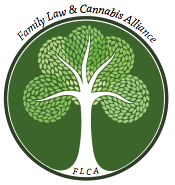Children & Family Services (CFS)
Overview
- Idaho Department of Health and Welfare — Children and Family Services (CFS)
Government website providing information about the department and its activities.
- Idaho Department of Health and Welfare — Child Welfare Standards
Provides direction and guidance about Children and Family Services programs with substantial documentation of the department’s internal regulations. Includes a leaflet on intake screening, which states that parental drug use is not screened in for safety assessment unless there is a “reported connection between drug use and maltreatment of the child,” or where “parental lifestyle concerns” that result in “specific maltreatment.” Also includes priority guidelines, which state that CFS always does an assessment when either mother or infant tests positive for drugs at labor & delivery. Such cases are designated “Priority I,” meaning that the infant is considered to be in immediate danger. The department responds to referrals concerning cannabis and older children “where the use of drugs or alcohol seriously affects the caregiver’s ability to supervise, protect, or care for their child(ren),” considering those cases “Priority III.”
Statutes & Regulations
Child Abuse & Neglect
- Idaho Code § 16-1602 — Definitions.
The definitions used by CFS and family court in child protection matters.
- Idaho Code § 16-1629 — Powers and duties of the department.
Authorizes and provides the powers and duties of CFS.
- Idaho Code § 16-1605 — Reporting of abuse, abandonment or neglect.
- Idaho Admin. Code r. 16.06.01.559 — Child protection safety & comprehensive assessments.
A list of “mandated reporters,” or professionals who are required to report known or suspected child abuse or neglect to CFS, and the law on when and how they must report. In Idaho, this is when the reporter has “reason to believe” that a child under 18 has been “abused, abandoned or neglected or who observes the child being subjected to conditions or circumstances which would reasonably result in abuse, abandonment or neglect.” Upon receiving the report, CFS must conduct a safety assessment to determine whether the allegations are “substantiated” or “unsubstantiated,” defined by r. 16.06.01.560.
- Idaho Admin. Code r. 16.06.01.561 et seq. — Child Protection Central Registry
All substantiated allegations of abuse or neglect go on the state’s Central Registry. As per 16.06.01.563.02, a cannabis-using pregnant woman or parent with a substantiated allegation is an individual with a Level Two designation. “Prenatal use of any controlled substance,” “administering or allowing to absorb or ingest” a controlled substance, exposing a child to drug paraphernalia, or the “manufacture of controlled substances” result in this designation. Level Two individuals remain in the Central Registry for a minimum of ten years, after which they may petition the department for their name to be removed.
- Idaho Admin. Code r. 16.06.01.564 et seq. — Notification; administrative review.
CFS is required to notify any parent or guardian of a child who is the subject of a substantiated report. If that individual is also the allegedly abusive or neglected caretaker, CFS must also notify them of their placement on the Central Registry. If he or she wishes to contest the decision, a request for review must be filed within 28 days of receiving the notice. If the parent or guardian does not request review within 28 days, he or she will not be able to appeal the substantiated finding. However, if a decision to substantiate is reviewed and then vacated (reversed), the person’s name is not placed on the Central Registry.
- Idaho Code § 16-1631 — Authorization for department to act.
- Idaho Code § 16-1610 — Petitions.
- Idaho Admin. Code r. 16.06.01.569 — Petition under the Child Protective Act.
During the initial stage of “safety assessment” immediately following a report of abuse or neglect, CFS is permitted to seek voluntary cooperation from parents and use other informal means to ensure the child’s safety. However, if the allegations are “substantiated,” and cannot be resolved to the caseworker’s satisfaction, CFS may petition for a court order of protection and request that the court hold a hearing to determine the best interests of the child.
State Marijuana Laws
There are no progressive marijuana laws in Idaho.
All Idaho Laws & Penalties (NORML)





